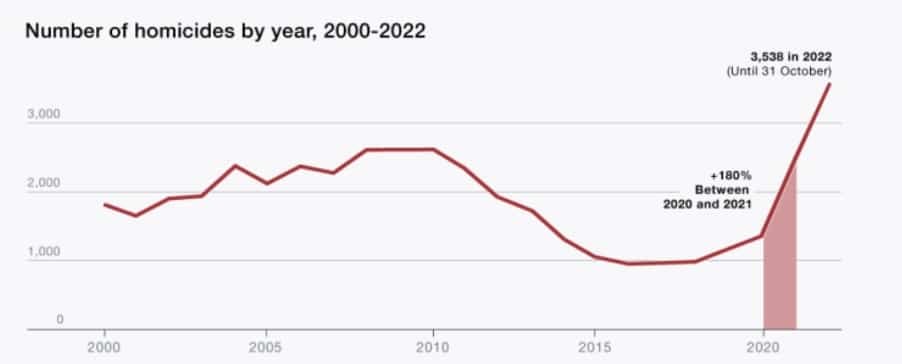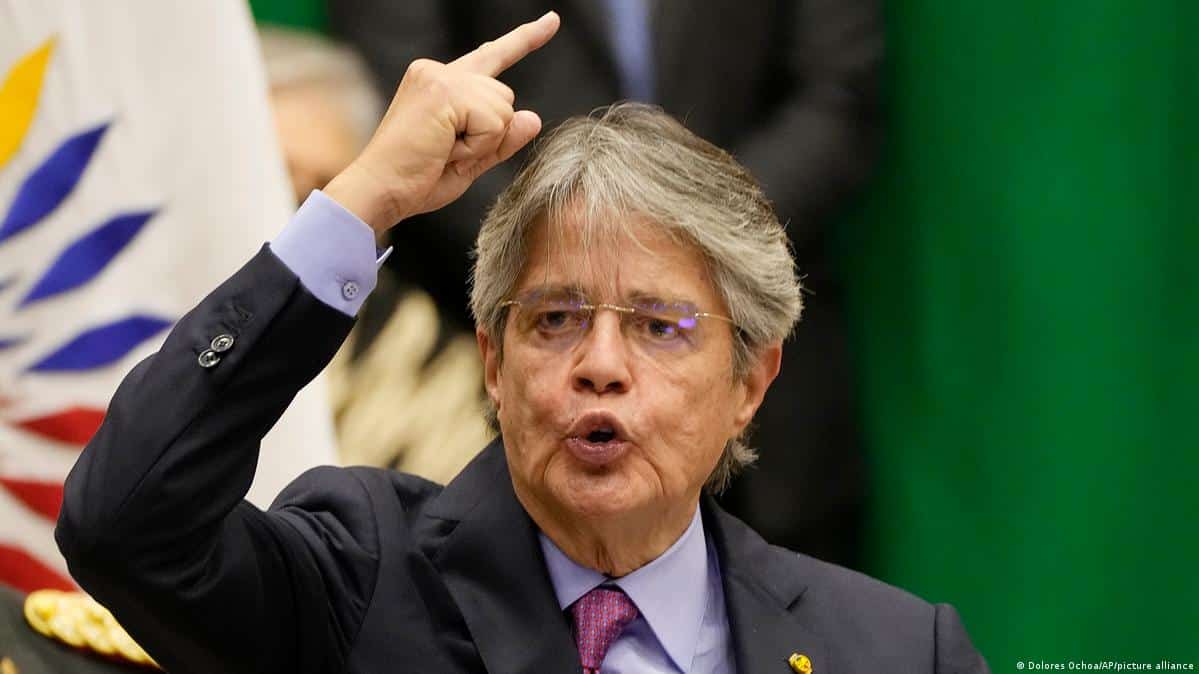BUENOS AIRES, Argentina (CN) — Ecuador is gearing up for a wide-ranging referendum on Feb. 5 that includes allowing the military to support the police in fighting drug trafficking, shrinking the size of the legislature and creating a water protection system.
The referendum is made up of eight questions, ranging from security and party registration to transparency and environmental protection. Among the proposals is to extradite Ecuadorians who are accused of international organized crime. Citizens can vote to approve or reject the eight proposals and any changes will amend the national constitution.
President Guillermo Lasso, a conservative former banker and leader of the center-right CREO party, took office in 2021.
“I ask you to use your democratic power through a citizen consultation which will confront problems that Ecuador has not been able to solve in the past,” said Lasso during an event in the capital Quito.
The government has struggled to control escalating gang violence in recent years. The murder rate has spiked from 5.8 per 100,000 in 2016 to 19.6 in 2022 — the highest ever recorded in Ecuador. Police attribute the majority of murders to clashes between criminal gangs fighting for control over the distribution and export of drugs.

According to a recent poll, the majority of voters support the reforms proposed in the referendum. The most popular reforms are the reduction of lawmakers in the National Assembly (82.3%), the creation of a water protection system (79.9%) and extraditing organized crime gang members (69.3%).
Despite broad support for the referendum, there is deep discontent at the Lasso administration. The president’s approval rating has slid to 15% since social unrest swept the country in June 2022, triggered by increasing food and fuel prices. It was led by CONAIE, the country’s largest indigenous rights organization and later joined by students and labor unions.

Lasso labelled protests an attempted coup and declared a national state of emergency. Violent clashes between protesters and the police led to many injuries and arrests. Human Rights Watch documented 500 injuries, including 300 civilians, and six deaths, including one victim who was hit by a tear gas cannister.
“The less the president and the government lead the campaign, the more likely it will be approved,” said Jacobo García, a political analyst. “As of today, the Yes campaign is likely to win, but this doesn’t mean the government will gain strength, legitimacy or popularity. The challenge is to turn the Yes campaign into a post-referendum agenda that works for the people. This is where the government loses, because the country’s problems are different, and the people are going to take their problems out on the government.”
During the anti-government protests last June, Lasso narrowly survived an impeachment vote in the opposition-majority 137-seat National Assembly. One of those that voted to impeach the president was Sofía Sánchez, a member of Pachakutik, the political arm of CONAIE, which holds 26 seats.
“The referendum, as a tool of direct democracy that has been used by former presidents Lenin and Correa, seeks to favor the government — that is evident,” said Sánchez.
“However, there are questions that are also national demands,” she added. “There is strong support among citizens to vote yes, largely because they are fed up with key issues regarding security, justice and popular representation. Regardless of the results of the vote, there should be a national plan and state strategies with projects and public policies to fight against crime and poverty and for the environment and the political and social rights of citizens.”
The government believes that the reforms laid out in the referendum will create a pathway out of the current security and institutional crisis and better protect the environment.
“Although there is no single solution to these problems, the referendum provides the state with eight tools to move forward,” said Jorge Pinto, a member of the governing center-right CREO party. “It is an opportunity to solve the main problems that are currently plaguing the country.”
“The fight against insecurity is based on having the tools to fight organized crime, such as extradition, which functions as a cooperation mechanism between countries,” Pinto added. “Four of the reforms seek to purify the political class and make it more efficient to improve democracy. And two questions relate to caring for the environment and fighting against illegal mining.”
Ecuador is used to referendums. Since 2006, citizens have voted in more referendums than for presidents.
“We could say that any form of consulting the people is positive and legitimate, but there are differences,” said García. “In general, they have been held to endorse governmental agendas and to strengthen the political capital of the moment.”
The current constitution of Ecuador was written up and approved in a national referendum in 2008. The progressive document was one of the first in the world to recognize the rights of nature, which provides strong environmental protections, as well as food sovereignty.
However, the application and enforcement of the text has become a challenge, along with a lack of political consensus.
“I believe that Ecuador has a serious problem of constitutionality, in the sense that they have not found a true pact that has been converted into a constitutional framework,” said García.
“Therefore,” he added, “it’s clear that the constitution can be improved and modified. The problem is that Lasso's interest is to do it to sustain himself, to limit the power of other institutions and political rivals and not to improve the social and political coexistence of the country.”
Subscribe to Closing Arguments
Sign up for new weekly newsletter Closing Arguments to get the latest about ongoing trials, major litigation and hot cases and rulings in courthouses around the U.S. and the world.









